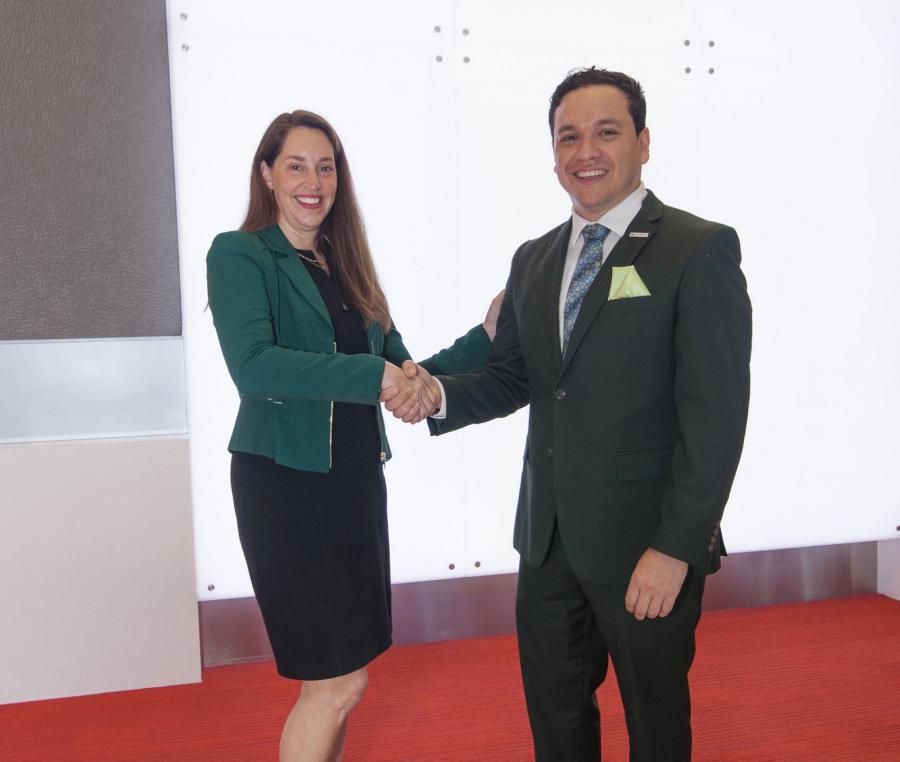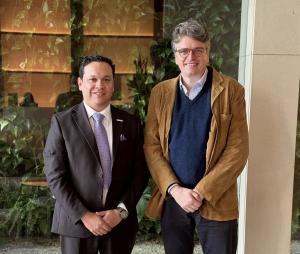
Sustainable Aviation Fuel Momentum Builds Through Global Initiatives and Projects
SãO PAULO, BRAZIL, June 23, 2025 /EINPresswire.com/ -- The acceleration of Sustainable Aviation Fuel (SAF) sits at the intersection of commercial urgency, technological maturity, and international coordination. The Society for Low Carbon Technologies (SFLCT) operates at this nexus, bridging policy, industry, governments, and early-stage project development, with its own members and related entities actively moving sustainable fuel projects forward. Prior to the passage of Brazil’s 2024 watershed Fuel of the Future law, SFLCT’s Chairman of the Board, Fernando C. Hernandez, engaged in a formative SAF initiative—anticipating legislation mirroring the U.K., where SAF advancement became a legal mandate. This positioning was guided by SFLCT’s role in helping shape the law’s carbon capture component and its active presence across both nations. The company behind this initiative—now a milestone—would later sign Brazil’s first SAF-from-biogas agreement, a development covered in detail below.
Another milestone includes the $6 billion clean fuels project in Uruguay, where SFLCT served as a convening platform between ANCAP (Uruguay’s national energy company) and HIF Global, helping catalyze the agreement. SFLCT then hosted a U.S. event titled “How CO₂ and Hydrogen Storage Create Sustainable Chemicals and Fuels.” There, Syzygy Plasmonics outlined a trajectory toward what is now recognized as an industry-first SAF plant in Uruguay, approved in June for development. Arcadia eFuels did the same for its first planned commercial site in Denmark. Ahead of the event, Hernandez met with Amy Hebert, CEO of Arcadia eFuels and Co-Chair of Project SkyPower, a CEO-led SAF coalition, to discuss cross-sector movement through the Project SkyPower platform.
Hernandez states, “This decade is pivotal to unlocking SAF globally. Our organization remains at the forefront of convening and backing projects, aligned with the cross-sector ambition embodied by Project SkyPower.”
In Brazil in 2024, Hernandez met with Alessandro Gardemann, Founder and CEO of Geo Biogas & Carbon, a leading biogas innovator in the country, along with the company’s engineering team. He conducted a site review at one of their biomethane facilities that harnesses and valorizes ethanol waste, recognizing its viability for conversion into SAF. That trajectory culminated in Geo Biogas signing Brazil’s first SAF-from-biogas agreement, marking a new chapter for a nation long recognized for its biofuel leadership.
Three of the four projects above are now reflected within SFLCT through Giovanni Fiori Tini (New Technologies & Advanced Fuels, Geo Biogas), Cecilia Romeu (Energy Transition Engineer, ANCAP), and Murtuza Marfani (SVP Development, Syzygy), who serve on SFLCT’s advisory board, reinforcing global momentum and expanding the organization’s international reach. Hernandez emphasizes that SFLCT’s infrastructure provides a neutral, trusted anchor for sustained engagement. It supports multinational policy alignment, institutional cooperation, and platform-wide scale—ensuring that SAF progress is systemic and not episodic.
This model extends to Global North and Global South government engagements. The former is reflected through Hernandez and Chris Thomson, then Minister Counsellor of the Scottish Government in the U.S., meeting in 2023 at the British Embassy in Washington, D.C., to discuss sustainable fuels and Scotland’s energy transition. More recently, Hernandez engaged with Panama’s Secretary of Energy, proposing that sustainable fuels serve not only aviation but also maritime transport, helping decarbonize vessels transiting the Panama Canal. He expanded on this vision during his keynote at the 17th International Gas & Energy Forum (IGEF), led by SFLCT advisory board member and IGEF CEO Miguel Zabala-Bishop.
Hernandez concludes by stating that SAF-powered aircraft transcend being fixed assets such as carbon capture plants. They are net-zero engines in motion, embedded across global fleets. They cross borders, unify skies, and form the living infrastructure of a low-carbon future. They require no retrofit and are drop-in ready, fully compliant with existing aviation standards.
Press Relations
Society for Low Carbon Technologies
email us here
Distribution channels: Energy Industry, Environment, Science, Technology, World & Regional
Legal Disclaimer:
EIN Presswire provides this news content "as is" without warranty of any kind. We do not accept any responsibility or liability for the accuracy, content, images, videos, licenses, completeness, legality, or reliability of the information contained in this article. If you have any complaints or copyright issues related to this article, kindly contact the author above.
Submit your press release

